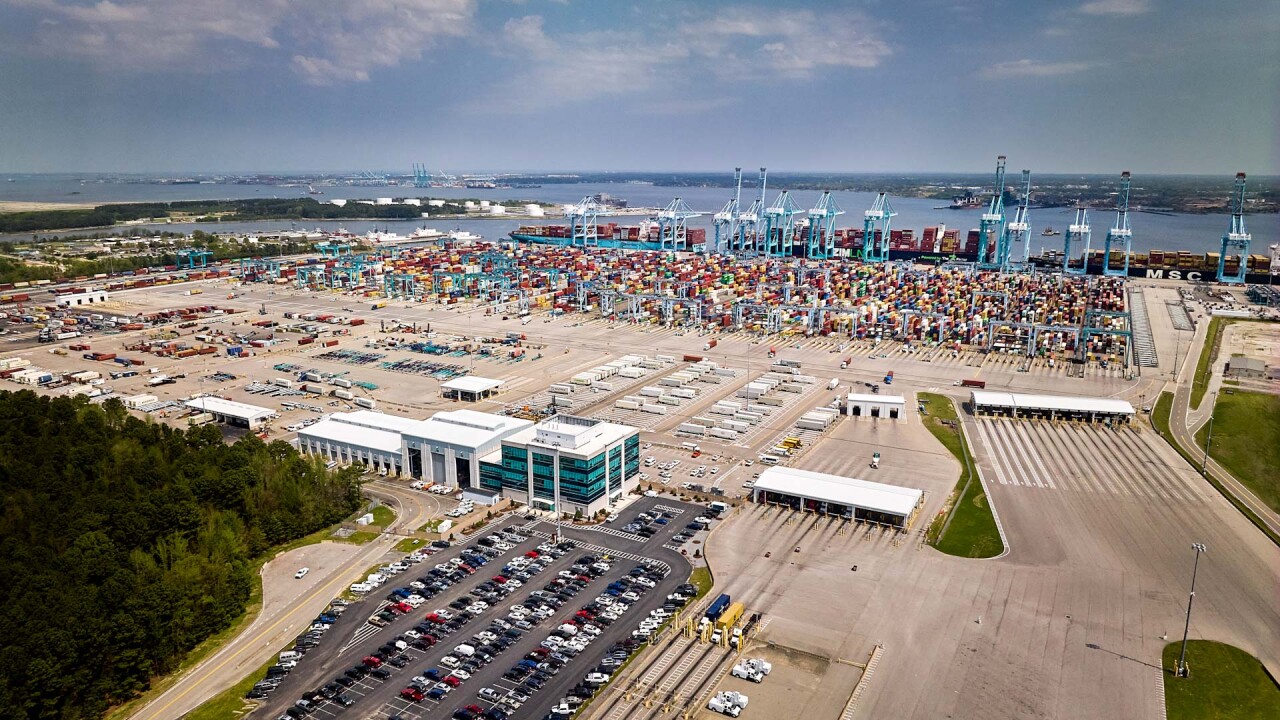Chicago hits the market this week with more than $1 billion of debt in three long-planned deals that will raise money to replace lead-lined water lines and other water and sewer projects and forward refund debt under the city's Sales Tax Securitization Corp.
The three transactions mark the final market outings under Mayor Lori Lightfoot whose four-year tenure ends May 15 when Brandon Johnson is sworn in to office.
Ahead of the deals, the city and its financing teams held investor meetings in Boston, Chicago, and New York City to promote

The STSC transaction was planned as part of a deal earlier this year that mostly forward refunds bonds that weren't tendered at the time and the water and wastewater deals have long been in the works as the city finalized a 100-year water service pact with the city of Joliet.
The pact provides
"The Joliet contract is a really important part of the credit factors" that helped draw an upgrade, Chicago Chief Financial Officer Jenny Huang Bennett said in an interview.
When you package the contract with an updated indenture and release of a 20-year financing plan on lead line replacement, the system is "on a much more stable financing footing," Bennett said. "Ultimately what this transaction is — is a culmination of a lot of work over the last four years" to achieve credit improvements "that create a holistically much better picture for water and wastewater."
The city began taking retail orders Monday for the second lien water revenue bond issue that will provide $121 million of new money and refund $367 million and will price the bonds for institutions Tuesday. The city has also secured federal approval for a $336 million Water Infrastructure Finance and Innovation Act, or WIFIA, loan to fund a portion of its lead service line replacements but is still finalizing loan terms.
The wastewater transaction provides $132 million of new money and $179 million of refundings with a retail order period set for Wednesday followed by the institutional pricing Thursday.
Most water and wastewater maturities will carry coverage from Assured Guaranty Municipal Corp. which should draw more investors to the table.
The Sales Tax Securitization Corp. deal offers a $42 million senior lien series and a $177 million second lien series in a forward refunding that will price Thursday.
While on a rating upswing, the deals come as market participants are wondering how the incoming Johnson administration will manage city finances, a potential recession, downtown office vacancies, and public safety.
The Lightfoot administration can't ensure that new leaders won't abandon its policies that have helped the city close in on structural balance, but Bennett believes the groundwork has been laid and that's the message the city promoted with investors.
Supplemental pension contributions have been written into policy and Lightfoot signed an executive order directing a budget surplus to future supplemental pension payments and reserves.
With any change in administration there's risk but it may not impact the pricing on the bonds, said Dennis Derby, senior research analyst and portfolio manager at Allspring Global Investments.
"It's hard to say but with the water and wastewater coming with Assured Guaranty you expand the buyer base and their overall credit quality is among the highest in the city's capital stock," Derby said. "I think the change in administration impact will be minimal on pricing." The STSC bonds are high grade and insulated from city finances.
Johnson, a Cook County board commissioner and former teacher and Chicago Teachers' Union organizer, has backed away from some of the $800 million in tax proposals he campaigned on. While Johnson's rival Paul Vallas was favored by the business community, Johnson has sought to establish relationships with business leaders through meetings and roles on his transition committees.
Johnson last week named transition team leaders and a series of subcommittees which did not include one focused on finance and the budget and then moved to fill in the subcommittees over the weekend.
On Monday, he named John Roberson, well known for his management roles in city and Cook County government, to the post of chief operating officer. Johnson has yet to name key finance team members but has asked some to stay aboard at least temporarily, sources said.
Bennett has openly shared with the public finance community her intention to move on but multiple sources say she has been asked to remain through a transitional period in the event a new CFO has not yet been named or to help with the transition and that she would be willing to do that for a brief period.
The incoming administration has been conducting interviews with candidates, most of whom are known to the public finance community from their current or former issuer or advisory roles, according to sources.
Water enterprise
The water bonds with their refreshed indenture were upgraded to underlying A-plus in April by S&P Global Ratings. The outlook is stable. Fitch Ratings assigns its A rating and a positive outlook, and Kroll Bond Rating Agency rates them AA with a stable outlook.
Mesirow Financial, Wells Fargo Securities, and Estrada Hinojosa are senior managers. PFM Financial Advisors and Sycamore Advisors are advisors.
The new indenture puts a lien on net revenues instead of the amounts deposited in the bonds account, adopts a formal days cash on hand policy and a 90 day requirement for the rate stabilization fund, establishes a new flow of funds with water/sewer funds separate from the corporate fund, and it clarifies that pension contributions are included in operating and maintenance expenses.
Bennett said it was time for an updated indenture since one had not been undertaken in at least 19 years.
"With the recent credit upgrade, simplified indenture, expanded service area and accelerating reinvestment demand we would expect the Chicago water bonds to price tighter than their current evaluation [at an 88 basis point spread] and more in line with peer A-rated utility credits," CreditSights said in its weekly preview.
The water system supplies treated Lake Michigan water to more 494,000 retail customers in the city and 120 suburbs. Beginning in 2030, the city will shift to cost of service approach with its wholesale customers based on American Water Works Association methodology.
Its top suburban customer, the DuPage Water Commission, which accounts for 15% of system revenues, is exploring establishing its own pipeline to Lake Michigan, a process that would require several decades.
The DuPage commission, whose contract with the city expires next year, reviewed the results of a consultant's report at an April meeting. It examined three routes that carry price tags between $1.5 billion and $2 billion. Fund options include borrowing and state and federal environmental loans.
Based on the assumptions in the study, the "alternative water supply system" could be more cost effective than continuing with Chicago. The report lists potential next steps that include the assignment of a project advisory team, project financing discussions, and the evaluation of the easements needed to use railroad, utility, and interstate highway right-of-way to bypass Chicago.
Chicago plans $1.6 billion of water work through 2026 with $760 million for improvements to and maintenance of the water distribution system including the lead service line replacement program and $470 million for improvements at the system's two water purification plants.
Under state legislation, the clock begins ticking for the city in 2027 on a 50-year requirement to replace lead lines with the possibility of extending the deadline by another 15 years.
The cost to replace all 350,000 lead service lines in the city carries an $8 billion to $10 billion price tag that's equally divided between the public and private side, said deputy CFO Jack Brofman. The city plans to absorb the public costs while keeping annual rate increases in line with inflation under a 20-year plan.
The city can't use system revenues to cover the private side's work but expects to receive federal funds including aid included in the federal infrastructure package to help manage the expense and has sufficient levels of funding for at least the next five years. The city also eventually could use GO borrowing to help cover costs if federal funds fall short.
Wastewater enterprise
Stifel, Nicolaus & Co. is the senior manager of the wastewater deal. PFM and Sycamore are advisors. Fitch rates the bonds A and stable, Kroll rates them AA-minus and stable, and S&P rates them A-plus and stable.
Proceeds will finance projects under a $1.2 billion plan through 2026 to replace and improve sewer mains and other structures. The wastewater transmission bonds are secured by system operations, which are limited to the collection of wastewater that is then treated by the Metropolitan Water Reclamation District of Greater Chicago.
With the deal, the city establishes a new master trust indenture similar to the water indenture, closing the senior lien and establishing a flow of funds and also setting rate covenants and imposing an additional bonds test of 110%. The city won bondholder approval to shed a debt service reserve freeing up $28 million and $2 million in annual cost for guaranty.
STSC
The senior lien Sales Tax Securitization Corp. series is rated AA with a positive outlook by Fitch, AAA and stable by Kroll, and AA-minus and positive by S&P. The second lien carries the same S&P rating, a AA-minus and stable from Fitch, and AA-plus and stable from Kroll.
The corporation garners higher ratings than the city's GOs, which are rated from Baa3 to A, because it's a bankruptcy-remote special purpose entity that is insulated from city fiscal strains.
Pledged sales taxes rose to $870 million in 2022 from $748 million in 2021 and $639 million in 2020 when they sunk amid the COVID-19 pandemic. They now exceed the $714 million collected before COVID in 2019.
The city has a buffer of $68 million between its additional bonds test ratios for new issuance and 2022 sales tax collections, according to the investor presentation.
CreditSights sees the current STSC spread of 68 bp as too tight to Chicago's GOs at 142 bp spread. "With the abundance of Illinois paper scheduled for the week and the lack of in-state demand we look for the STSC bonds to be priced wider than the benchmark, plus additional spread for the extended settlement."
RBC Capital Markets, Siebert Williams Shank & Co. LLC, and UBS Financial Services are senior managers. Public Alternative Advisors LLC, Phoenix Capital Partners LLP, and PFM are advising.





